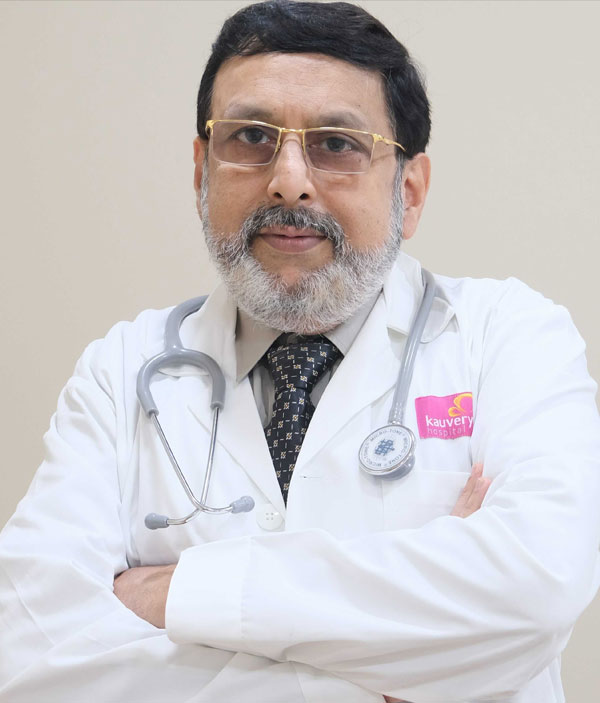Equip Yourself with Breast Cancer Facts
Breast cancer – a cancer that develops in the cells of the breasts is the commonest cancer in urban women and second most common cancer in rural women in India. The incidence of the disease is 25.8/1,00,000 women (age adjusted) in India when compared to 2.3 million incidences globally. The age of incidence is a decade earlier in India (before menopause) compared to Western countries (after menopause). Although both men and women develop breast cancer, women are more likely to develop the disease.

The commonest risk factors are increasing age, early menarche, late menopause, a strong family history of breast cancer, obesity, radiation exposure at younger age, nulliparity, having first childbirth after 30 years, intake of hormonal therapy, intake of alcohol, genetic mutations, a personal history of breast diseases (atypical hyperplasia, LCIS) and a personal history of breast cancer (where the other breast is at risk). About 5-10% of breast cancers are due to inherited gene mutations. The most well-known are breast cancer gene 1 (BRCA1) and breast cancer gene 2 (BRCA2), both of which significantly increase the risk of both breast and ovarian cancer.
The most common signs and symptoms include a painless breast lump or thickening that feels different from the surrounding tissue. The other symptoms include changes in the size, shape or appearance of the breast, changes in the skin such as dimpling, inversion of the nipple, peeling, scaling, crusting or flaking of the pigmented area of skin around the nipple, redness or pitting of the skin over the breast, presence of swelling in the axilla (lymph node enlargement), etc.
The self-breast examination (SBE) and the clinical breast examination (CBE) should start from the age of 25 years. Mammogram can be used as both a screening and diagnostic tool for breast cancer. The screening mammogram for the general population is done usually from 40 years annually. For high-risk individuals, such as with inherited genetic mutations, the mammogram has to be done at an earlier age. Ultrasound of the breasts serves as a complementary tool to mammogram.
Stages of breast cancer include stage I to IV, in which stage I & II are categorised as early breast cancer (disease is confined to breast), stage III is locally advanced breast cancer (disease has spread to regional lymph nodes) and stage IV is metastatic breast cancer (disease has spread to non-regional lymph nodes or other parts of the body).
The treatment options include surgery (either conservation of the breasts or total removal), radiotherapy, chemotherapy, targeted therapy, hormonal therapy and immunotherapy depending on the staging of the disease and the prognostic markers. The modalities are sequenced in order to obtain high chances of cure with minimal side effects. With the advancements in the medical field, oncoplastic surgeries preserve the normal contour of the breast and give good cosmetic results to the patients. These surgeries are usually done in patients with early breast cancer.
Radiotherapy is usually given for a period of 5 weeks. With the advancements in radiotherapy, the duration of the treatment has been reduced to 3 weeks and recently, the total duration of the treatment is maximum 5 days based on Fast Forward trial for early breast cancers. This will enable the patients to resume their routine activity at the earliest with high chances of cure, minimal side effects and minimal hospital stay. At Kauvery Hospital, totally 9 patients were treated based on this trial. All the patients completed the treatment without any major side effects and are coming for follow-up.
Chemotherapy can be delivered with minimal side effects with the arrival of newer agents. Targeted therapy is given for HER2neu positive patients. Hormonal therapy is given for receptor positive (ER/PR) patients. Immunotherapy is usually given for the patients in whom the disease has spread to other parts of the body (metastases).
The preventive strategies of average risk individuals include breast self-examination for breast awareness, maintaining a healthy weight, choosing a healthy diet, avoiding alcohol consumption, limiting postmenopausal hormonal therapy and screening. The preventive strategies for high-risk individuals include preventive medicines (SERMs/aromatase inhibitors) and preventive surgery (prophylactic mastectomy – removal of the breasts/prophylactic oophorectomy – removal of ovaries). If you have any further queries, consult your doctor.

Dr. A. N. Vaidhyswaran
Director and Senior Consultant, Radiation Oncologist
Kauvery Hospital Chennai
Dear Readers,
This Pinktober, I am overwhelmed to share this heartfelt review by a patient for our radiation oncology department! Patients usually never want to be with doctors unless their bonding is so emotional mutually.
Kauvery Hospital, Chennai Radiation Department is Par Excellence!
In the month of June, l had taken my sister aged around 70 years for radiation after chemotherapy and mastectomy to the radiation centre at Kauvery Hospital, Chennai. I was very much impressed with the entire department. The minute you alight, you had the lady security guard greeting us and assisting us. Once when you enter the radiation waiting hall it is so spick and clean with chairs neatly spread out with adequate leg room, right lighting and ambience. The room temperature is so comforting, neither too warm nor too cold, it’s just right as though you are inside an airplane. On approaching the Enquiry desk, you are greeted with a lovely warm smile by the women staff and extended a warm greeting. They are very responsive and is all ears to what you have to say. Patiently they answer all your questions despite being busy on the phone queries. They really handle it well. And this is not just day 1 or last day. Right from the day they do the screening, mould preparation, CT, etc. the entire team of the department handles with care. The team consisting of the front office about whom l had mentioned, the doctors & technicians handling the radiation, the sisters and also the house keeping staff are so professional, well-mannered, take great care of the patients’ needs with a genuine keenness to make the patient comfortable. Also shows no preferential treatment. They are also proactive and keep patients informed if some delays take place due to some reason and also follow up with patients, if need be, regarding timing, etc.
I visited this center right from 12th June’22 till 12th July’22.
The entire Radiation Team needs to be truly commended for their stellar performance and it does speak volumes of the bosses in the department and the management of Kauvery Hospital, Chennai.
I am sure & have no doubt in my mind that they would continue to deliver very good patient service who comes into the Center for Radiation.
There are only 5 stars, so l have given 5 stars. If not given them even more.
Mr. Manobendra Biswas
Google Reviews

